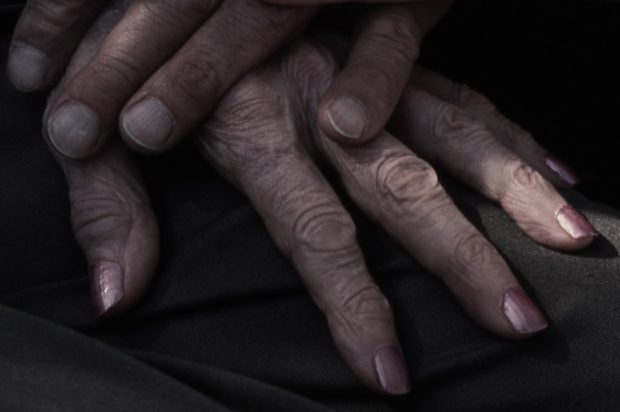
In our social work with adults blogs this year we will be introducing thought provoking themes and ideas from across the sector.
Ones that may challenge us, others that we can relate to, but all that will hopefully engage us in critically reflecting on what, when and where we ‘do’ social work.
In this blog, Dr Mervyn Eastman, Co-Founder and Society Secretary, Change AGEnts Network UK Co-operative and Co-Founder and President of the Practitioner Alliance For Safeguarding Adults (PASA), shines a light on the thinking around compassionate ageism and offers a critique of its usefulness or hindrance in social work practice.

Terms of engagement
The social work profession is predicated on its ethics, values and what constitutes a ‘good, caring society.’ Our virtues encompass compassion, detached caring, warmth, honesty, courage, hopefulness and humanity, the greatest of which is compassion - or is it?
As with empathy, compassion and concern are seen as forces for good which do not necessarily require the mirroring of others’ feelings. Arguably, compassion can exist independently of empathy and is sometimes opposed.
This apparent contradiction - even tension - can, I would argue, be especially apparent in how social work/care engages (or doesn’t) with older adults deemed vulnerable or needy.
This is evidenced in some social work practice and applied processes, where we tend to tilt things to favour the outcomes that benefit ourselves or, I would add, our employing organisations.
By this I mean assessments, interventions and responses geared towards managing resources, demand, delayed hospital discharges and case load throughput.
Definitions of need and vulnerability, risk and safeguarding feed the current doom and gloom narratives about age and ageing, the social care crisis and the increasingly relentless consequences of an ageing demographic!

Devil in the detail
The term ‘compassionate ageism’ is the belief that older adults are needy and deserve special policies to help them.
This has led to the commodification and ‘othering’ of older adults and responses which can re-enforce paternalistic and patronising social care services.
We use language and adopt behaviours which risk demeaning and disempowering those we are tasked to help, clothed in social work and managerial jargon.
As a consequence, we risk celebrating the tangible results of our compassion with little thought to their short and long-term outcomes for individual recipients.
The outcomes of our ‘benevolent patronage’ can so often be pernicious and at worse lead to negative and damaging outcomes for the person.
These outcomes can be biased, doom laden, frail-obsessed and based on stereotyped assumptions of what it means to be an older adult.

History repeating itself?
Compassionate ageism may have had its roots in the 1950s, marking the rise of collective concern and age specific benefits, but the fault remains with us in 2020.
It threatens our social care policies and certainly our practice, because it is primarily based on misguided assertions, language and imagery misuse, and damaging assumptions, including:
- Older adults are a problem, rather than having problems and ambitions to resolve
- They demonstrate only dependency, sickness and deficit
- Images of wrinkly hands and other supposed infirmities are ubiquitous and frequently negative
- “We must do something” – the presumption of crisis leading to potentially damaging interventions.
This mindset labels older adults as ‘aged’ or ‘elderly’ and we, as compassionate caring care workers have colluded in the notion that their chronological age – and assumed status - deems them ‘deserving and worthy’ of a particular approach. In effect, we have institutionalised a specific social care service construct that, in fact, very few people actually want!
Negative power dynamic
Ageism is the exercise of power with reference to age. Beware the presumption of plight, decline and the desire to be rescued – and do not patronise with pity!
A rescuer can easily become the persecutor, and good intentions, risk assessments, safeguarding procedures, care homes, day centres, eligibility criteria, home care, budgets, financial management, and adult social care generally, can become, in reality, oppression.
Social work as a profession must be aware of such contradictions and its role within them, critically reflecting on every situation where such challenges arise.
Understanding our professional responsibilities, commitment to human independence and relational approaches is just the first step to understanding and resisting any practice that pleases the system at the expense of the person.
This blog will, we are sure, provoke a wide range of strongly held views. Please share your thoughts in the comments section below.
3 comments
Comment by peter durrant posted on
Not just 'othering' but 'mothering' too and as a long-retired community/development social worker, living alone in housing association mixed tenancy accommodation it is remarkable how this top-down body simply is unaware of progressive social work yet alone community development and practice. I've just taken them, as one of the few shared ownership people in the building, to the Ombudsman but, largely, lost due no doubt to their very narrow view of the concept. But community social should be alive and well in this lovely, but institutional-type building and does create huge opportunities if we all thought through Asset Based Community Development and like. But sadly no with the local authority, on the social work and housing front, totally disinterested. Look forward to further discussions which is my defence, of course, against loneliness and isolation and never get any responses from social work courses and bodies.
Comment by Andrew Makin posted on
I’m 70, and although still professionally active can see this approach heading in my direction. I’ve started to experience it.
I see it in my younger colleagues and peers in health and social care: kind, well-meaning, even dedicated, but still patronising, still paternalistic.
Determined, in fact, to look after people.
Comment by Ann Greaves posted on
Thought provoking! But a little 'one size fits all' for my liking. We should be looking at each person as an individual; actions that may save the life of one person could be seen as restrictive to another. That doesn't mean we shouldn't act, we should be looking for a range of solutions that can help everyone